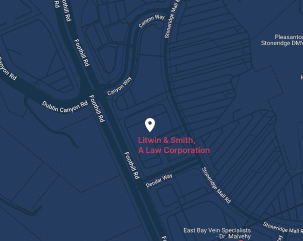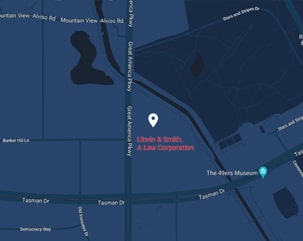You thought that you supplied USCIS with all the required documentation. You clearly qualify for the benefit being sought. However, USCIS has stated that “the evidence you submitted is insufficient to establish eligibility.” Now your only recourse is to “submit evidence which meets the requirements as specified below.”
That’s a familiar story for many applicants and sponsors for fiscal year (FY) 2024. While the current presidential administration has taken steps to make visas easier to receive, it has not fully reversed Trump-era policies that made immigration more difficult.
Additionally, demand for these visas is higher than ever, so USCIS is becoming increasingly strict. In 2018, USCIS imposed additional bases of denial, including:
- Failure to demonstrate an employer-employee relationship
- Absence of non-speculative work
- Failure to provide a complete itinerary
If you do not provide enough detailed information about these matters, USCIS will send a request for evidence (RFE) to confirm whether you are eligible to apply.
This is no problem if you understand what USCIS is requesting. The issue is that if you fail to include sufficient evidence in your initial filing, you may not know what you need to submit to meet the requirements. Your visa petition will be denied if your response lacks the detail required to properly respond.
H-1B Denials Fall, But Demand Increases
For several years, H-1B denials were at record highs. The Trump administration issued a memorandum in March 2017, stating, “I direct the Secretary of State, the Attorney General, the Secretary of Homeland Security […] to rigorously enforce all existing grounds of inadmissibility and to ensure subsequent compliance with related laws after admission.” While this memorandum was eventually rescinded by President Biden, it led to several policies later found unlawful by federal judges that unfairly restricted access to H-1B visas.
Additionally, the April 2017 “Buy American and Hire American” executive order increased RFEs, H-1B scrutiny, and denials to reduce the number of H-1B temporary visa holders admitted to the United States.
According to a National Foundation for American Policy (NFAP) analysis of U.S. Citizenship and Immigration Services (USCIS) data, denial rates for H-1B petitions then increased significantly, rising from 6% in 2015 to 21% in 2019 for new H-1B petitions for initial employment. Additionally, 12% of petitions for continued employment were denied in 2018, while just 3% were rejected in 2015.
Numbers have returned to normal over the past several years, though. For FY 2022, only 2% of all H-1B petitions were denied, the lowest rate since this data was tracked by USCIS. However, this is only partially due to more immigration-friendly policies. It appears to be partially due to more care being taken by applicants after years of unlawfully strict USCIS reviews.
While denials have fallen, they are more devastating than ever. For FY 2024, USCIS received 758,994 eligible registrations for H-1B visas. That is 60% higher than FY 2023 and 382% higher than FY 2017. Meanwhile, the total number of H-1B visas available has remained static for decades: 85,000.
This year, eligible applicants had just a 14.6% chance of being selected to apply for an H-1B visa, compared to a 54.2% chance in FY 2017. The chances of being chosen to apply again next year are shrinking annually. Having your petition denied due to an RFE could mean you never receive the opportunity again.
When Are RFEs Issued?
There are two ways to minimize the impact of RFEs on your application: avoid them entirely, or respond with sufficient detail to prevent them from leading to a denial. Avoiding them is currently significantly easier due to the historically low rates of denied applications. USCIS has identified the top reasons it issued RFEs as:
- “The petitioner did not establish that the position qualifies as a specialty occupation.”
- “The petitioner did not establish that they had a valid employer-employee relationship with the beneficiary.”
- “The petitioner did not establish they have specific and non-speculative qualifying assignments in a specialty occupation for the entire time requested in the petition.”
These can be avoided by working with an experienced immigration attorney. Furthermore, under the current administration, RFEs are significantly less common. However, if you receive one because you filed independently, it is imperative to respond clearly and comprehensively. Failing to do so will lead to a denial and potentially prevent you from receiving an H-1B for years to come.
The Importance of Experienced Immigration Attorneys for RFEs
If responding to RFEs incorrectly can lead to denials, shouldn’t you worry? If you try to resolve the situation alone, yes, an RFE is a serious problem. However, you do not need to handle the process by yourself. Instead, you can work with a skilled immigration attorney at Litwin & Smith.
Our team has a long track record of successfully preparing and obtaining H-1B nonimmigrant visas for employers and subsequent immigrant visas and green cards for their employees. We also have decades of experience responding to RFEs for clients who submitted applications independently. We prepare hundreds of such petitions each year. Litwin & Smith is dedicated to offering every client the professional service and attention to detail that built our reputation.
For more detailed information regarding work and family visas, green cards, and other immigration and naturalization issues, please reach out to our California office for a free consultation today.
Sources:
“H-1B Denials and Requests for Evidence Increase Under the Trump Administration,” National Foundation for American Policy, July 2018, https://nfap.com/wp-content/uploads/2018/07/H-1B-Denial-and-RFE-Increase.NFAP-Policy-Brief.July-2018.pdf (Accessed June 7, 2023)
“H-1B Electronic Registration Process,” USCIS, https://www.uscis.gov/working-in-the-united-states/temporary-workers/h-1b-specialty-occupations-and-fashion-models/h-1b-electronic-registration-process (accessed June 7, 2023)
“H-1B Petitions And Denial Rates In FY 2022,” National Federation for American Policy, February 2023, https://nfap.com/research/new-nfap-policy-brief-h-1b-petitions-and-denial-rates-in-fy-2022/ (Accessed June 7, 2023)
“Understanding Requests for Evidence (RFEs): A Breakdown of Why RFEs Were Issued for H-1B Petitions in Fiscal Year 2018,” USCIS, https://www.uscis.gov/sites/default/files/document/tip-sheets/H-1B_Filing_Tips_and_Understanding_Requests_for_Evidence_RFEs.pdf (accessed June 7, 2023)


